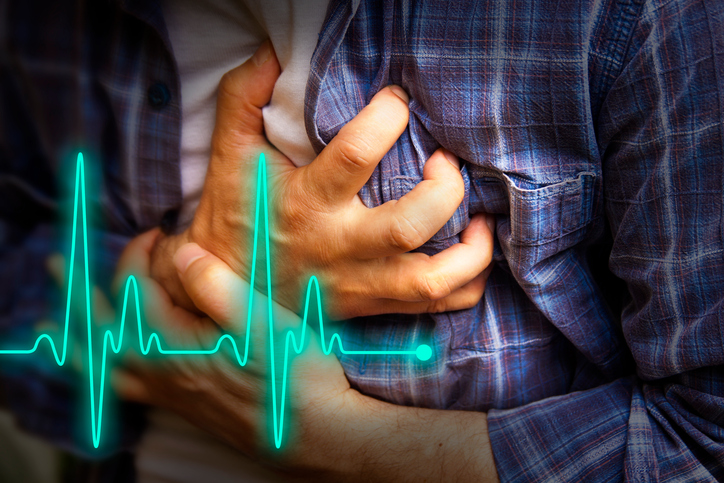 Q: Can you explain different types of chest pains? How do I know when to see a doctor? - K. T.
Q: Can you explain different types of chest pains? How do I know when to see a doctor? - K. T.
A: There are several types of chest pain because chest pain may also be caused by problems in your lungs, esophagus muscles, ribs or nerves.
Pinpointed chest pain.
If a sharp pain seems to be coming from a very specific location, it’s probably not heart pain. The pain associated with a heart attack is generally dull and diffusely located in the chest.
Chest pain that shows up in different areas.
For example: One day your chest pain is on the right side of your chest, and the next day it’s on the left side of your chest. Heart pain can radiate into the arms, jaw and between the shoulder blades, but it rarely moves from place to place on different days.
Chest pain that gets worse when you take a breath.
This could be anything from pericarditis (a swelling of the membrane surrounding the heart) to a cracked rib.
Does Your Pain Feel Like This?
- Sharp
- Dull
- Burning
- Aching
- Stabbing
- A tight, squeezing, or crushing sensation
It could be...
Coronary Artery Disease –
Blockage in the heart blood vessels that causes reduced blood flow and oxygen to the heart muscle. The chest pain may spread to your arm, shoulder, jaw or back. It may feel like a pressure or squeezing sensation.
Heart Attack –
Severe, crushing pain usually in the center or left side of the chest and is not relieved by rest. Most heart attacks involve discomfort in the center of the chest that lasts more than a few minutes – or it may go away and then return. It can feel like uncomfortable pressure, squeezing, fullness or pain. Discomfort in other areas of the upper body.
Pericarditis –
Inflammation or infections of the sac around the heart. Sharp, steady pain along the upper neck and shoulder muscle.
Hypertrophic Cardiomyopathy –
A genetic disease that causes the heart muscle to grow thick. This type of chest pain and shortness of breath usually occur with exercise.
Coronary Artery Dissection –
Rare but deadly condition, which results when a tear develops in the coronary artery. Severe pain with a tearing or ripping sensation that goes up into the neck, back, or abdomen.
When in doubt, call your doctor about any chest pain you have, especially if it comes on suddenly or is not relieved by anti-inflammatory medications. Call 911 if you have any of these symptoms along with chest pain:
- A sudden feeling of pressure, squeezing, tightness, or crushing under your breastbone
- Chest pain that spreads to your jaw, left arm, or back
- Sudden sharp chest pain with shortness of breath, especially after a long period of inactivity
- Nausea, dizziness, rapid heart rate or rapid breathing, confusion, ashen color, or excessive sweating
- Very low blood pressure or very low heart rate
RELATED: Did You Know? There Are 8 Ways To Diagnose Coronary Artery Disease
Call your doctor if you have any of these symptoms:
- Fever, chills, or coughing up yellow-green mucus
- Problems swallowing
- Severe chest pain that does not go away
 If you have any questions, don’t hesitate to 'Ask Dr. Renee'. Follow me on Twitter @AskDrRenee and on my website.
If you have any questions, don’t hesitate to 'Ask Dr. Renee'. Follow me on Twitter @AskDrRenee and on my website.








